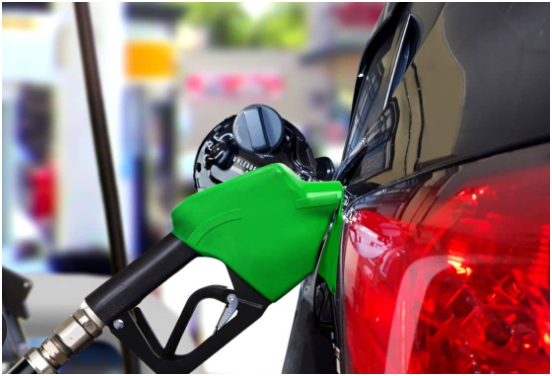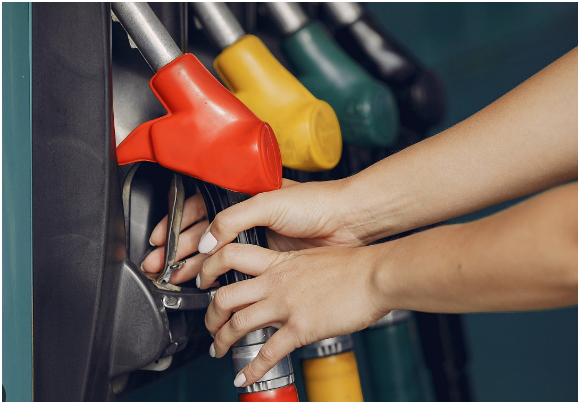UAE Residents Grapple with Skyrocketing Fuel Costs
The UAE Fuel Price Committee has recently disclosed the petrol and diesel rates for April 2024, slated to take effect from the beginning of the month. The adjustments are as follows:
– Super 98 petrol will be priced at Dh3.15 per litre, up from Dh3.03 in March.
– Special 95 petrol will cost Dh3.03 per litre, compared to Dh2.92 last month.
– E-Plus 91 petrol will be priced at Dh2.96 a litre, compared to Dh2.85 in March.
– Diesel will see a decrease in price, set at Dh3.09 per litre as opposed to Dh3.16 in the previous month.
As fuel prices soar for the third consecutive month, UAE residents are devising strategies to mitigate the impact on their budgets. The newly announced rates for April 2024 mark the highest in the past six months, imposing a significant burden on consumers.

The April prices reflect an approximate 3.9 percent increase across the board, with Super 98 petrol reaching Dh3.15 per litre, Special 95 at Dh3.03, and E-Plus 91 at Dh2.96. While diesel prices have been revised downward to Dh3.09 per litre, the escalation in petrol costs poses challenges for individuals like Faten Mohammed, a Syrian expat residing in Ajman and working in Jebel Ali.
For Faten, the impending price hike translates to an additional expenditure of nearly Dh500 on petrol alone. “This news comes as a blow, especially considering the concurrent rise in other expenses,” she laments. To cope with the escalating costs, Faten has resorted to adjusting her commute routine, opting for shorter routes and off-peak travel times. “I leave home at 5 in the morning to avoid traffic congestion, and I’ve switched to Mohamed bin Zayed road for its shorter distance,” she explains.
The deregulation of retail fuel prices in 2015 ushered in a monthly revision system to align local rates with global fluctuations. The current surge marks the steepest prices witnessed in the past six months, a stark contrast to October 2023 when Super 98, Special 95, and E-Plus retailed at Dh3.44, Dh3.33, and Dh3.26 per litre, respectively.
Echoing Faten’s concerns, Shiyaz Iqbal, a Dubai resident, anticipates the financial strain posed by increased petrol expenses. “As a sales professional, a significant portion of my day is spent on the road meeting clients,” he shares. “With next month’s anticipated increase, my petrol costs are estimated to rise by at least Dh100.” Considering alternative transportation options, such as the metro, may become imperative if prices continue to escalate.
Moreover, individuals like Shiyaz are compelled to postpone plans, including vehicle upgrades, due to the adverse economic impact. “I had contemplated purchasing a larger vehicle for my family, but the current petrol prices deter me from doing so,” he explains, emphasizing the pivotal role of petrol consumption in his decision-making process.
The surge in fuel prices mirrors global trends, with March witnessing an average Brent price of around $84.25 per barrel, up from $81.3 the previous month. This surge is attributed to heightened market tightness and increased demand growth projections by the International Energy Agency. With WTI and Brent crude prices reaching $83.17 and $87.0 per barrel, respectively, by the end of March, the economic repercussions are palpable.
The announcement of soaring petrol prices in the UAE poses significant challenges for residents, prompting them to adopt measures to navigate the financial strain. As global oil prices continue to fluctuate, consumers brace themselves for potential economic repercussions, highlighting the interconnectedness of local and international markets in shaping individual livelihoods.
The surge in fuel prices not only impacts individual consumers but also reverberates throughout the broader economy, affecting businesses and industries reliant on transportation and energy. As the cost of fuel rises, businesses may face increased operational expenses, leading to potential price hikes for goods and services. This ripple effect underscores the far-reaching consequences of fluctuations in fuel prices, emphasizing the need for adaptive strategies at both individual and organizational levels.
Stay up to date with every latest news-click here



